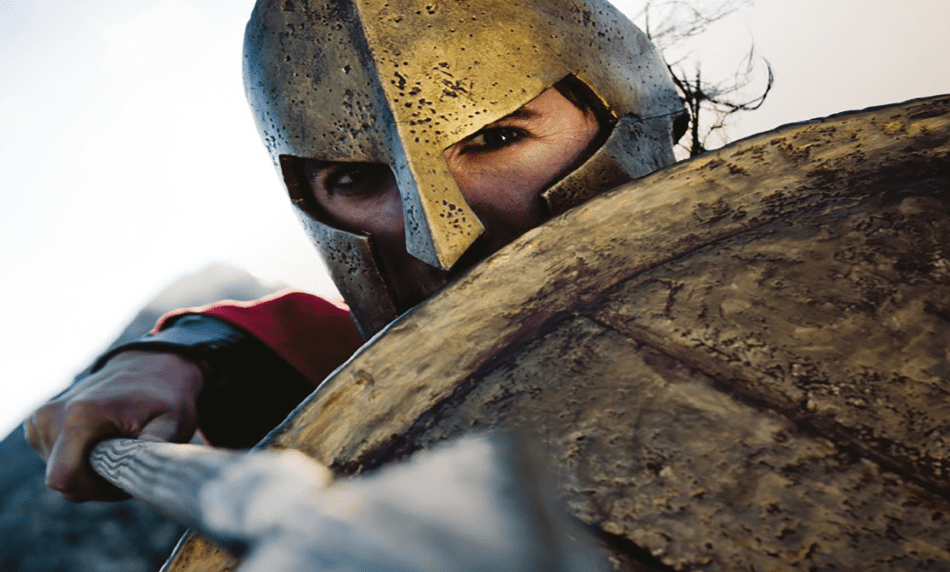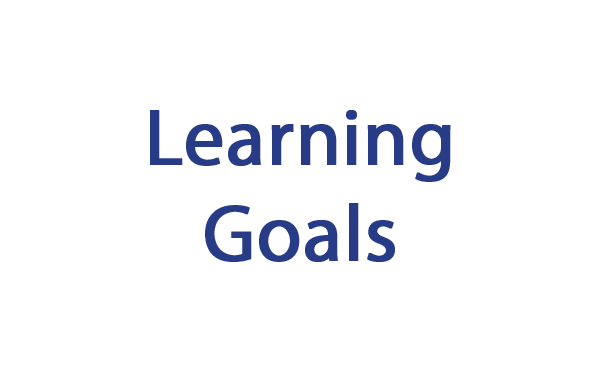

Key Learning Goals - History:
3.10 Be able to find out about aspects of the past from a range of sources
3.11 Be able to describe and identify reasons for and results of historical events, situations, and changes in the periods they have studied
3.14 Be able to describe how the history of one country affects that of another
3.15 Be able to ask and answer questions about the past
3.16 Be able to select and record information relevant to an historical topic
3.17 Be able to place the events, people and changes in the periods they have studied into a chronological framework
The big idea
The history of western civilisation begins with the Greeks and the Romans. Their expanding empires helped to spread ideas about architecture, food, entertainment, literature, science, medicine and politics across the globe. As their empires ended, other cultures rose to prominence, absorbing and passing on their own ideas and cultures – creating the world we know today.
In History, we’ll focus on:
It’s famous for more than just the Olympics! In this BrainPOP movie, Tim and Moby introduce you to the Golden Age of Athens. You’ll learn why Athens was special among the Greek city-states, and why it was famous for art, literature, and philosophy. You’ll learn who Pericles was, why he was so important to Athens, and what he worked for. You’ll also find out about some of the famous Athenian philosophers and playwrights, as well as an important biannual event that every Athenian took part in—even prisoners! Finally, you’ll learn about the role of women in ancient Athens.
In this BrainPOP movie, Tim and Moby introduce you to the complicated family tree of the major Greek gods. You’ll learn who ruled each region of the universe, and where the gods lived when they weren’t causing trouble on Earth. You’ll hear mini-bios for a number of the gods, including the goddess of the hunt; the god of music; the ruler of the gods and his wife; the god of metalworking; the god of war; the goddess of love, and more! You’ll find out how they were thought to interact with each other, as well as what role the gods played in the daily lives of Ancient Greeks. Finally, you’ll find out what happened to the Greek gods.
In the BrainPOP movie on Homer, you’ll learn all about the Iliad and the Odyssey, two epic poems written thousands of years ago in ancient Greece. You’ll meet the wide range of characters who populate these works, and hear all about their exciting adventures. You’ll find out how poetry was an oral tradition back then, and why Homer, who’s usually credited as the author of these poems, may not have actually existed. Finally, you’ll learn how Homer’s works have influenced generations of artists and writers!
In this BrainPOP movie, you’ll find out just how long it did take to build Rome as Tim and Moby introduce you to the rise of the Roman Empire. You’ll learn what came before the Empire and why that preceding government was no longer working. You’ll learn who Julius Caesar was, what he did to made him so powerful, and what happened when he returned to Rome. Plus, find out why the Senate had him killed, and see who succeeded him as emperor. Finally, you’ll find out how power was divided up in the Empire and how such a long and bloody struggle gave way to 200 years of peace and prosperity!
In this BrainPOP movie, Tim and Moby introduce you to the last queen of Egypt, whose downfall led directly to the establishment of the Roman Empire. First you’ll find out where Cleopatra’s family came from and how she ended up being queen of Egypt. Discover how Julius Caesar helped Cleopatra seize power from her younger brother, and how the unrolling of a carpet led to their romantic relationship! You’ll also learn about how Cleopatra won the heart of Mark Antony, the powerful Roman general, and why their relationship caused tempers to flare back in Rome.
In this BrainPOP movie, Tim and Moby review the impressive resume of Abraham Lincoln! Follow the life of the 16th President of the United States, starting with his birth in a log cabin. Learn about Lincoln’s eloquence as a speaker, from his performance in the Lincoln-Douglas debates to his famous Gettysburg Address. Witness how his quest to abolish slavery resulted in the Emancipation Proclamation, and how his leadership during the Civil War successfully saved a nation from being split in two.
In this BrainPOP movie you’ll learn why we read this particular diary as Tim and Moby introduce you to the courageous story of Anne Frank. You’ll find out what the Holocaust was, who perpetrated it, and how some people tried to escape its wrath. You’ll learn what the Secret Annex was, how a small group of people managed to hide for over two years, who helped them, and why they didn’t stay in the Annex through the whole war.
2008 marked a milestone in U.S. history: Barack Obama became the first African American elected to hold our nation's highest office. With a Kenyan father and a Kansan mother, Obama grew up in the diverse culture of Hawaii. As a little-known senator from Illinois, Obama delivered a speech at the 2004 Democratic National Convention that catapulted him to national fame. Four years later, his historic presidential campaign resulted in a landslide victory! But Obama inherited a crippling economic recession. Under his leadership, Democrats in Congress passed a relief plan to stabilize the economy. After that, the President focused on social issues like healthcare reform. The passage of the Affordable Care Act, nicknamed "Obamacare," was a major victory. But it also drew sharp criticism from Republicans and spurred the rise of the Tea Party. Despite Congressional gridlock, Obama won a second term and achieved many important goals both at home and abroad.
“I have a dream ...” You know the words, but what do you know about the man who said them? In this BrainPOP movie, Tim and Moby introduce you to the inspiring life of Dr. Martin Luther King, Jr.! You’ll learn what the civil rights movement was, what was different about the United States in the first part of the 20th Century, and what segregation had to do with it. You’ll learn about King’s family background and how he helped begin the Montgomery bus boycott. You’ll also discover who inspired King, and how his non-violent protests lead to Supreme Court decisions banning segregation. Plus, you’ll find out some of the dangers King faced in his fight to end segregation — and how he met an untimely death.
In this BrainPOP movie, Tim and Moby tell you about why this man was an important American figure. You’ll learn how his politics differed from those of other civil rights activists of the 50s and 60s. You’ll also find out about black nationalism and why Malcolm’s political convictions lead him to reject his last name in favor of ‘X.’ Discover a little about Malcolm’s early years, including how prison changed his life — and how a trip to Mecca changed it again. Finally, you’ll find out about Malcolm X’s untimely death.
There's never been another like Muhammad Ali. Born Cassius Clay, the boy who would become a champion boxer grew up in the shadow of the Jim Crow South, and was shaped by its injustices. But Clay was destined for Olympic gold and worldwide celebrity. His lightning-fast reflexes in the ring drew him into the spotlight, and his quick wit and sharp tongue helped him stay there. Clay drew widespread criticism when he joined the Nation of Islam and changed his name to Ali. When he refused to be drafted into the Vietnam War, he was barred from boxing for the best years of his career. Ali eventually renounced his radical politics, and a Supreme Court victory put him back in the ring. He went on to deliver some of the most memorable fights of his career. In retirement, Ali continued to speak out for equality all over the world.
See more relevant resources on BrainPop
https://www.brainpop.com/socialstudies/famoushistoricalfigures/
Learn about the Roman Empire and how life in Britain changed under Roman rule. Discover how the influence of the Romans can still be seen all around us.
Learn about the ways that Greek civilization has influenced modern life by examining and analysing primary sources. The resource also looks at the origins and importance of the Olympic Games.
http://news.bbc.co.uk/dna/place-lancashire/plain/A3483029
A BBC News research article on the Battle of Brunaburh, providing an excellent overview of the who, why, when and where of the event
http://home.freeuk.net/elloughton13/episode1.htm
A Primary School website with simple but informative comparisons between different people living in Sparta and Athens
http://www.academickids.com/encyclopedia/index.php/Battle_of_Maldon
Academic Kids offers an overview of the events of the Battle of Maldon as told in the poem of the same name
http://www.britain-magazine.com/features/history/roman-legacy/
Britain Magazine features an informative article looking at the impact of Roman occupation on the Celtic people of Britain
http://www.classicsunveiled.com/romeh/html/conquestgaul.html
Classics Unveiled provides an overview of Caesar’-s campaigns in Gaul - useful as a starting point for further research
http://www.ducksters.com/history/middle_ages/alfred_the_great.php
Ducksters features a biography of Alfred the Great, with a focus on his battles and victory over the Danish ruler, Guthrum. (Note: this site does feature advertising.)
http://www.ducksters.com/history/ancient_greece.php
Ducksters provides facts and images on a number of topics related to Ancient Greece
http://www.earlybritishkingdoms.com/kids/sutton_treasures.html
Early British Kingdoms provides good background information and a list of the treasures that were found at Sutton Hoo. Some links include photographs
http://www.eduplace.com/kids/socsci/ca/books/bkf3/imaps/AC_11_382_ pwars/AC_11_382_pwars.html Education Place features an interactive resource which uses animated maps to retell the main events of the Persian invasion
http://www.gorhamschools.org/~janellem/NOTATION%20GAMES.html
Gorham Schools website has links to a selection of interactive games to teach children about notation and scoring
http://www.greeklandscapes.com/maps/ancient_greece.html
Greek Landscapes hosts a library of images, featuring reconstructions, cross-sections and floor plans of the original Parthenon building
http://www.historvius.com/roman-sites/pe91
Historvius is a full-searchable database of historic sites, featuring excellent images and maps showing roman remains/architecture in modern-day France and Britain
http://www.historyonthenet.com/Romans/romansmain.htm
History on the Net provides an excellent and comprehensive set of resources, including a section on the Roman invasion of Britain
http://www.italyguides.it/us/roma/rome_italy_travel.htm
Italy Guides features excellent sections on the Colosseum, Pantheon,Forum and Roman baths, including interactive panoramas
http://www.kidspast.com/world-history/0079-roman-government.php
Kids Past offers a concise overview of the Roman Republic (note: this site carries advertising)
http://www.makingmusicfun.net/
Making Music Fun provides printable worksheets, practice charts and musical scores for use in the classroom
http://rome.mrdonn.org/senate.html
Mr Donn’-s educational site provides an explanation of the senate system and a comparative table showing the different levels of power in the Republic (note: this site carries advertising)
http://www.perseus.tufts.edu/Olympics/sports.html
Perseus DigitalLibrary has an excellent section on the Olympic Games, with facts and artefact images for all of the main sporting events
http://primaryfacts.com/1260/what-did-the-romans-bring-to-britain/
Primary Facts offers a basic bullet-pointed list of the ideas, laws, inventions and foods that the Romans brought to the countries they invaded - useful as a starting point for further investigation
http://http://primaryfacts.com/1292/alexander-the-great-facts-and- information/
Primary Facts offers helpful bullet-pointed facts about Alexander the Great (note: this site does feature advertising)
http://primaryhomeworkhelp.co.uk/saxons.htm
Primary Homework Help provides informative answers to a series of questions about the Anglo-Saxons
http://www.primaryresources.co.uk/history/powerpoint/Athens_V_Sparta.ppt
Primary Resources has a useful PowerPoint presentation to download, looking at the key differences between Sparta and Athens
http://rangevoting.org/SpartaBury.html
Rangevoting.org features a clear and concise overview of the Spartan political system and how it operated
Roman Colosseum provides good information on the Colosseum, Circus and other amphitheatres in Rome (note: this site carries advertising)
http://www.socialstudiesforkids.com/subjects/persianwars.htm
Social Studies for Kids provides information, maps and links to further articles and resources exploring the main battles and personalities of the Persian War
http://ancienthistory.about.com/od/fallofrome/ tp/022509FallofRomeReasons.htm
The About.com Classical History section features an excellent overview of the fall of the Roman Empire (note: this site contains advertising)
http://www.ancient.eu.com/Alexander_the_Great/
The Ancient History Encyclopaedia has a detailed entry on Alexander exploring his early life, military campaigns and achievements
The Ancient History Encyclopaedia is a searchable database, featuring entries on the battles of the Persian War and the formation of the Delian League
http://anglosaxondiscovery.ashmolean.museum/index.html
The Ashmolean Museum has a helpful resource on the Anglo-Saxons. Although its presentation is aimed at younger children, there is a lot of information on the site - clearly presented and useful as a starting point
http://www.battleofmaldon.org.uk/
The Battle of Maldon website features background information and a map of the battle site. (Note: this site does feature advertising.)
http://www.battlefieldstrust.com/
The Battlefields Trust website provides information on all of the battles between the Vikings, Saxons and Normans, with links to maps of each of the battle sites
http://www.bbc.co.uk/education/clips/z7k8q6f
The BBC Learning Zone features a video tour of a Roman villa and explains how the rich Romans lived in luxury
http://www.bbc.co.uk/schools/primaryhistory/romans/invasion/
The BBC Primary History website features a section on Roman invasion
http://www.bbc.co.uk/schools/primaryhistory/ancient_greeks/
The BBC Primary History website has an excellent section on the Ancient Greeks, supported by videos and artefact images
http://www.bbc.co.uk/schools/primaryhistory/anglo_saxons/
The BBC Primary History website has an excellent section on the Anglo- Saxons, including videos and images of artefacts
http://www.bbc.co.uk/schools/primaryhistory/anglo_saxons/alfred_the_great/
The BBC Primary History website provides a basic overview of Alfred the Great and also features a video explaining the importance of the Anglo- Saxon Chronicle
http://www.bbc.co.uk/schools/primaryhistory/ancient_greeks/the_olympic_ games/
The BBC Primary History website provides useful background information and images on the Olympic Games
The British Museum features excellent images of the Sutton Hoo treasures. Type ‘Sutton Hoo’- into the search engine to access resources, including a PowerPoint slideshow
http://www.ancientgreece.co.uk/dailylife/story/sto_set.html
The British Museum has an Ancient Greece section exploring daily life in Athens and Sparta
http://www.ancientgreece.co.uk/acropolis/story/sto_set.html
The British Museum has an Ancient Greece section, featuring an interactive resource in which children can explore the Parthenon frieze
http://www.ancientgreece.co.uk/war/home_set.html
The British Museum has an Ancient Greece section, featuring the story of the 300 Spartans at Thermopylae and a chance to explore the battlefield of Plataea
http://www.britishmuseum.org/explore/online_tours/europe/the_vikings/ the_vikings.aspx
The British Museum website has a gallery of Viking artefacts for children to explore
http://www.ancientgreece.co.uk/festivals/explore/exp_set.html
The British Museum website provides opportunity to explore a Greek theatre. By clicking on the actors, objects and the scenery, the children can discover further facts and images
http://www.caerleon.net/history/index.htm
The Caerleon website is dedicated to the history and archaeology of this village in Wales, which was the site of a Roman legion fortress
http://history.parkfieldict.co.uk/romans/roman-invasions
The Children’s British History Encyclopaedia provides useful information on the Roman invasion of Britain, the resistance by Celtic tribes and what the Romans brought to Britain
http://www.mcah.columbia.edu/parthenon/flash/nfrieze1.htm
The Columbia University website provides an interactive tour of the Parthenon. Select ‘east, west, north or south’- views then use the slider to view the frieze
http://www.history.com/topics/middle-ages/videos/dark-ages-barbarians-ii- the-saxonsalfred
The History Channel features an excellent documentary explaining how Alfred fought successfully against the Viking invaders
http://www.historylearningsite.co.uk/edward_the_confessor.htm
The History Learning Site features biographies of Edward the Confessor (whose lack of heir led to the Norman and Viking invasions) and William the Conqueror
http://www.historylearningsite.co.uk/roman_houses.htm
The History Learning site has a section on Roman homes, describing the layout of a villa, how they were decorated and the systems that provided water and heating
http://www.nationaltheatre.org.uk/video/antigone-the-ancient-greek-chorus
The National Theatre website features a number of videos on Greek Theatre, including this example of a Greek chorus (note this production does not include singing!)
http://www.pbs.org/empires/thegreeks/background/8b_p1.html
The PBS Empires website provides a concise overview of the Spartan system of government
http://www.theschoolrun.com/homework-help/alfred-the-great
The School Run features a biography, timeline, facts and an image gallery to support a study of Alfred the Great
http://rces.woodlands-junior.kent.sch.uk/homework/vikingsax.html
The Woodlands Junior School website features a good overview of the Vikings and their life in Britain
http://www.richeast.org/htwm/greeks/theatre/actors.html
This site features articles on various areas of Greek life and history, including an explanation of the costumes, props and techniques used in Ancient Greek theatre
http://en.wikipedia.org/wiki/Migration_Period
Wikipedia features an excellent map showing migration of tribes during the fall of the Roman Empire
http://en.wikipedia.org/wiki/Alfred_the_Great
Wikipedia provides a detailed biography of Alfred the Great and his achievements - useful for your own background information and preparation of resources
http://resources.woodlands-junior.kent.sch.uk/homework/Romans.html
Woodlands Junior School website provides excellent resources on the Romans in Britain
http://www.youtube.com/watch?v=8ppfsDlWdIE
YouTube hosts this video showing modern-day examples of Greek chorus in theatre and entertainment
http://www.youtube.com/watch?v=zMzYj0PsKWs
YouTube hosts this video which takes a look at the artefacts and exhibits at the Yorvik Centre in York
http://www.youtube.com/watch?v=W4eF1tw8_nU
YouTube hosts this virtual tour of ancient architecture. The first minute of the video focuses on a Roman domus, showing detailed views of each of the rooms






